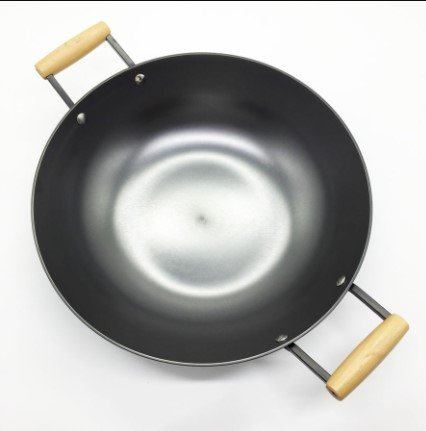News
Hard Nitriding Cast Iron: Strength, Innovation, Performance
Cast iron cookware has long been a top pick among chefs due to its durability, versatility and flavor-enhancer properties. Unfortunately, however, cast iron can also have its drawbacks, such as being heavy, susceptible to rusting and needing regular seasoning. Therefore, some manufacturers have developed hard nitriding, which improves cast iron’s performance by infusing it with nitrogen gas. In this article we’ll explain what hard nitriding is, its advantages for cast iron cookware users and what safety precautions must be observed when using cast iron cookware nitriding.
What Is Hard Nitriding?
Table of Contents
Hard nitriding is a heat-treating process that uses nitrogen gas or solid to nitride metal surfaces and create a case-hardened surface, typically used on low alloy steels but also applicable to cast iron. To conduct hard nitriding effectively on cast iron requires applying an excess nitrogen-rich gas or solid to its surface and heating it to about 1000 deg F in an industrial furnace. This produces a thin but hard coating which protects it against corrosion and wear-and-tear damage.
Benefits of Hard Nitriding Cast Iron
- Hard nitriding cast iron reduces its weight by around 30%, making it easier to handle and store. Furthermore, its hard coating offers added scratch resistance against everyday usage or cleaning.
- Permanent Non-stick: Nitrided cast iron surfaces feature an inbuilt non-stick layer that prevents food from sticking, making cleaning simpler. Furthermore, unlike regular cast iron cookware, nitrided cast iron does not need to be regularly seasoned or reseasoned.
- Rust Resistant: The nitrogen coating prevents oxygen and moisture from penetrating cast iron surfaces, thus limiting their exposure to oxygen, thus avoiding any risk of rust formation and discoloration.
- Heat retention and distribution: Nitrided cast iron boasts superior heat retention and distribution properties, making it suitable for multiple cooking methods and temperatures.
Precautions to take when Nitriding Cast Iron
- Hard nitriding cast iron is generally safe to use; however, some precautions should be taken in order to prolong its quality and ensure its longevities. These precautions include:
- Avoid Thermal Shock: When dealing with nitrided cast iron, be wary of sudden changes in temperature; for instance placing hot pans into cold water can result in cracking or warping of metal. This could cause cracking and warping and may require extra care to protect it.
- Use low to medium heat: Avoid using excessively high temperatures when cooking with nitrided cast iron as this could damage its coating or lead to food being scorched, instead opt for low to medium temperatures and slowly preheat your pan before adding food.
- Use wooden or silicone utensils: Avoid metal utensils on cast iron as these may scratch its surface and reduce its nonstick quality, preferring wooden or silicone instead.
- Hand wash only: Nitrided cast iron should never be put in the dishwasher as this can compromise its coating or lead to rusting. Instead, hand-wash using warm water and mild soap before drying thoroughly after each use.
FAQ: The Ultimate Guide To Your Questions
Q: What are the differences between hard nitriding and seasoning?
A: Seasoning involves applying oil or fat to cast iron surfaces and baking it at high temperatures to form a protective coating that inhibits rust while increasing non-stickiness. Hard nitriding infuses nitrogen into these same surfaces at high temperatures to form a hard coating which further prevents rust while increasing non-stickiness; both processes must be repeated periodically while hard nitriding remains permanent.
Q: How can I season hard nitriding cast iron?
A: Seasoning hard nitriding cast iron isn’t necessary as its surface already contains an effective non-stick layer, however if you want to improve its performance or appearance you can season it like regular cast iron by applying a thin coat of oil or fat and baking in an oven at 375degF for one hour before allowing to cool completely before use.
Q: How can I clean hard nitriding cast iron?
A: Cleanup of hard nitriding cast iron is easy as food does not adhere to its surface, simply wash by hand with warm water and mild soap and dry thoroughly after each use. Do not use abrasive cleaners such as steel wool pads as these may scratch its surface; similarly do not put it in the dishwasher as this could damage its coating or lead to rusting.
Q: Where can I purchase hard nitriding cast iron?
A: Although hard nitriding cast iron is relatively uncommon in the market, you can find some online retailers selling it. Lehman’s offers various sizes and shapes of hard nitriding skillets2. Another retailer to check out is Sarchi Cookware which offers hard nitriding cast iron skillets with various finishes and logos.
Stay tuned to CHOPNEWS for the latest scoops and updates of Business News, Sports News, Technology News, World News and Entertainment News





